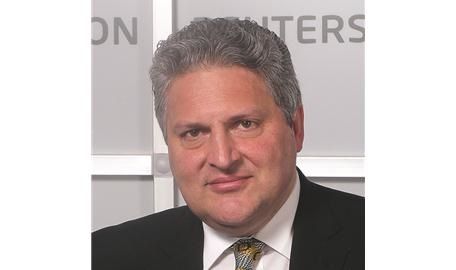SUCCESSION PLANNING IS in the air at HSBC HQ in London. Now that the group has made its decision to stay in London and 2015 earnings are out of the way, the focus has shifted to who takes over from chairman Douglas Flint in the next year or so – we’re told an external candidate – and who replaces Stuart Gulliver as the CEO targets end-2017 as his exit.
Should we be extending early congratulations to GB&M boss Samir Assaf as he follows in Gulliver’s footsteps from the investment bank to the corner office? Could be. But there are other names out there. John Flint, the retail banking and wealth management boss since 2013, looks good on paper and has a more rounded skill-set: 14 years in Asia (Asia-time is a big plus for anyone looking to run HSBC), deep knowledge of global markets, stints as global treasurer and running asset management, time in strategy and planning. Nice.
Of course Simon Cooper had been mentioned in despatches as a potential future successor but HSBC’s former head of global commercial banking took the Winters shilling last year and skipped to Standard Chartered as head of corporate and institutional banking (odd move unless it was succession-driven and Cooper didn’t get the answers he was seeking).
In a noteworthy parallel to Cooper’s departure, Alan Keir, CEO of HSBC Bank PLC, retired after 34 years at the group and is leaving next month. Antonio Simoes has taken over. But I wonder: with the Portuguese Simoes in situ, might that make it more palatable for fellow Portuguese, current Lloyds CEO and all-round hero Antonio Horta-Osorio to make the switch? Particularly as the end of the British government’s dalliance with Lloyds looks likely to coincide with Gulliver’s departure.
Is Assaf’s drive for the corner office what prompted him last week to hire Matthew Westerman – a 10-year adviser to the bank – at the same time as he reorganised the division to return it to what it was before his previous reorg in 2013? Has Westerman been primed to take over from Assaf as head of GM&M? Could he go all the way to the top?
Who knows? But hiring Westerman from the upper echelons of the racy Goldman Sachs was undoubtedly a coup for the rather crusty HSBC, even more so with his Asia credentials firmly established. Given that leaving Goldman for HSBC is a bit like leaving Man City or Arsenal for West Brom or Watford (harsh?), you’d imagine Westerman was given the promise of stature and career upside before agreeing to make the switch.
On that measure, the co-head structure that he is walking into with Robin Phillips may not last too long. I sense an impending chairmanship or vice-chairmanship coming Phillips’s way once Westerman has got his feet properly under the desk.
That happened to former co-global head of banking Kevin Adeson back in 2013 when Phillips was given the nod to take over as sole head. And of course it’s what happened in the past week to Spencer Lake as the capital financing group he ran was merged back into banking. The project-based assignments that Lake is taking on as part of his new role – China and RMB internationalisation, infrastructure and sustainable financing – will give him the time to devote to his ICMA chairmanship (where he’s also driving a hard-line China agenda).
GLUING CAPITAL FINANCING back together with banking recreates a more streamlined look, especially with the addition of the large clients that were shifted into global banking from commercial banking. The new structure plays into the new thinking that investment banks have adopted in the 2015–16 reorg circus that has separated banking and markets into distinct monoliths.
But, but and but … I do wonder what HSBC thinks it can gain by another reorg and how – genuinely – Assaf thinks it’ll give him the market-share steal he so openly covets.
At the time of his mid-2013 reorg, I wrote the following: “Without any real fundamental change to HSBC’s GBM model, it might end up being another one of those rather futile exercises in re-arranging the deck chairs … As you follow the reorganisation cycle endlessly round and round, you inevitably … end up switching back to something you did years ago probably without even realising it”.
I stand by every word. Is HSBC an appreciably better investment bank than it was then? I wouldn’t have thought so. Getting Westerman in could at least prevent Assaf constantly churning the same senior lieutenants into new jobs and titles and verticals/horizontals.
Phillips, Lake and (current) head of EMEA GB&M Jose-Luis Guerrero have had so many titles and jobs in recent times. Guerrero and Lake were co-heads of global markets until the former became sole head when Lake got capital financing. But not for long: Assaf then made Guerrero head of EMEA GBM when he caught the regional hub bug and gave a boost to his CCF mate Thibaut de Roux to step up to run the global markets gig.
You get the sense that big change is afoot at HSBC. On the investment banking and global markets front, Assaf has been pretty cautious about articulating – publicly anyway – what the group’s real ambitions are. For years now, pretty much everyone has been saying that for a group the size of HSBC its GB&M franchise should be doing better than it currently does.
Is it the case that HSBC is the investment bank of the future but always will be? Bold, concerted and aggressive action is required, as well as sustained investment in the platform.
Safe travels, Matthew.
